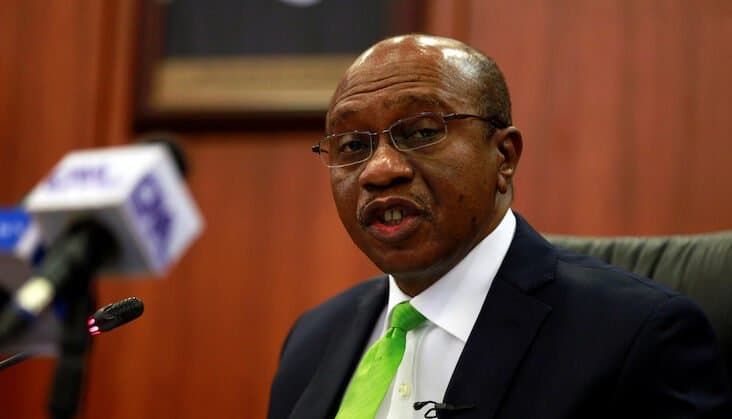Mr Godwin Emefiele, the CBN Governor, had launched the RT200 (Race to $200 billion) idea earlier this year, in response to what is an existential problem for this country. Some people call it ‘dollar scarcity’, but what it actually is, is a perennial, permanent balance of trade crisis resulting in a balance of payment disaster. This crisis has been worsened and laid bare, with increased vandalism and if you like, ‘nationalisation’ or privateering of the nation’s crude oil resource by criminals as well as communities.
The communities have complained for long about injustice. I wouldn’t say I support all their claims. But now, elements in many communities have simply found ways of debarring the government from getting much. Organised criminals everywhere have also leveraged on the community angst, such that in some assets, when 200,000 barrels is pumped through the pipes, only 3,000 barrels is found at the other end. That is a 98.5 per cent loss. Which serious company will maintain such an asset resulting in major losses? The asset that Tony Elumelu acquired suffered this fate.
Therefore, the industry has seen serious divestment in Nigeria. They also made some mistakes. The Minister of State, Timipre Sylva said the other day that they were asked to cut down production by 100,000 barrels a day sometime in 2020 by the OPEC cartel to which Nigeria belongs. They mistakenly cut down 300,000 and till date have been able to recover only 70,000 in production. Nigeria is unable to meet even her OPEC quota, as only deep-sea production by the major International Oil Companies are assured these days, shallow water and land assets having been greatly compromised.
The crude oil sector in Nigeria is as good as dead. What Nigeria manages to get from exporting below-OPEC- quota crude oil – which is like 30 per cent of the value as reported by NEITI (the 70 per cent bulk value being due to the IOC’s who actually produce the crude) – is totally cancelled out by the refined petroleum and other oils like diesel that we import. The Minister of Finance, Hajiya Zainab Ahmed, said this exactly at the recently concluded World Bank Nigeria Development Update.
With crude oil no longer able to save Nigeria, we have all been caught swimming naked. Our rump is now in the open. But our behaviours have not been curbed. Nigeria is often left out of many analyses by serious entities these days, because we are an outlier – a very unique case study of how to totally mess up an economy.
Contrary to what the banker types and liberal economic thinkers and pushers of ‘orthodox’ economic thinking would have us believe, the issue is not just the petrol subsidies. Imagine that people are pushing a developing, informal economy to adopt orthodox ideas of Adam Smith! Nigeria agreed when Buhari removed subsidy by raising the price of petroleum from N87 to N145 in 2016. What undid that ‘full and final’ removal of subsidy was the devaluation of the naira that came right after. All of a sudden, N145 which had been equivalent to about 80 cents, became less than 40 cents, bringing back the subsidy, which was then termed as ‘under-recovery’ by the NNPC.
I don’t think any serious economic argument went on under the Buhari administration. Or maybe what they lacked was honesty in painting the true picture for the president. Devaluation and deregulation, when you mark the market to the US dollar, do not go together. The same issue is sure affecting the power sector as we chase an elusive ‘market-reflective tariff’. The people are groaning. The economy is dying. Crime is rising. Inflation is rising. We are in another economic depression and something needs to be done urgently.
As far as the so-called ‘dollar scarcity’ is concerned, I think the use of that phrase by those who promote it – including manufacturers’ bodies apart from bankers – is escapist, lazy and deliberately obliterates the importance of the trouble we are in. You cannot complain about ‘scarcity’ of money when you are not working or producing anything worthwhile for others to buy off you. You should get a job, or create something worth some value, and push it in a crazy, dog-eat-dog world that the market is.
As far as the nation is concerned, we must understand that almost all the countries that matter want us to remain where we are – as markets for their manufactures and technologies, while they sometimes humour us by buying some of the crops that we produce. The African Growth and Opportunities Act (AGOA), promoted by the USA is one of such. The focus is on raw commodities (which they often reject for reasons of standards and traces of pesticides (what they call phytosanitary conditions). Indeed, the AGOA is dominated largely by crude oil from countries that produce it in Africa.
I think it is important that we repeat ad nauseum, the fact that our top 15 imports – according to Trading Economics – are each in several billion dollars range, while only two of our exports can be so categorized. Our chief import, year on year, is technology (hardware, software, machinery for our few industries, spares, cars, and the expensive gadgets of which we are very fond).
Nigerians love carrying their expensive phones around, and they love their glistening luxury cars. But we can ill-afford these. The government that comes next has too much to do. I pity them. It will not be a walk in the park at all. Some decisions will rile the public but they must be taken. Those who will work with government MUST have to work for free. It must have to be a sacrificial government that will work so that coming governments may build on their sweat. But who cares? Who can see this vision? Well, after technology, our next biggest import is refined petrol. If we import technology, gadgets, phones and cars worth about $40 billion annually, we also import petrol and diesel of close to $20 billion. The problem is that we don’t make up to $20 billion from crude in some years – being our 30 per cent share.
Concluded on www.dailytrust.com

 Join Daily Trust WhatsApp Community For Quick Access To News and Happenings Around You.
Join Daily Trust WhatsApp Community For Quick Access To News and Happenings Around You.


